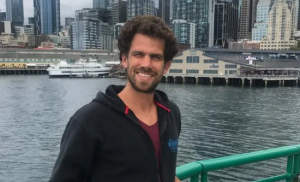Indian photojournalist Danish Siddiqui’s death in Afghanistan was not an accident, he was killed by Taliban in a planned manner, after verifying his identity, according to a report published in a US-based magazine on Thursday. Taliban had initially said that they were not aware of his identity.
Siddiqui, 38, a Pulitzer award winning journalist, was on assignment in Afghanistan when he was killed on July 16 while covering clashes between Afghan troops and the Taliban in Spin Boldak district of Kandahar city. He had travelled to the district with an Afghan National Army team to cover the fight for the control of the lucrative border crossing with Pakistan.
Also read: Taliban says China a ‘trustworthy friend’, sends a message to the rest
Siddiqui and two other men were separated from the rest of the team after a Taliban attack. During this attack, Siddiqui received a shrapnel injury, and so he and his team took refuge in a local mosque where he received first aid.
But, soon word spread that a journalist had taken refuge in the mosque. That is when the Taliban struck again and killed Siddiqui. Initial investigation suggests the Taliban attacked the mosque only because they knew Siddiqui was there, the report said.
Also read: US ‘really messed it up’ in Afghanistan: Pakistan PM Imran Khan
The report adds that Siddiqui was alive when the Taliban captured him. The terror group verified Siddiqui’s identity and then executed him, and others with him. The commander and the remainder of his team died as they tried to rescue him.
“While a widely circulated public photograph shows Siddiqui’s face recognizable, I reviewed other photographs and a video of Siddiqui’s body provided to me by a source in the Indian government that show the Taliban beat Siddiqui around the head and then riddled his body with bullets,” wrote the writer Micheal Rubin, who is a senior fellow at the American Enterprise Institute.
Siddiqui had won the Pulitzer Prize in 2018 as part of the Reuters team for their coverage of the Rohingya crisis. He had extensively covered the Afghanistan conflict, the Hong Kong protests and other major events in Asia, Middle East, and Europe.






